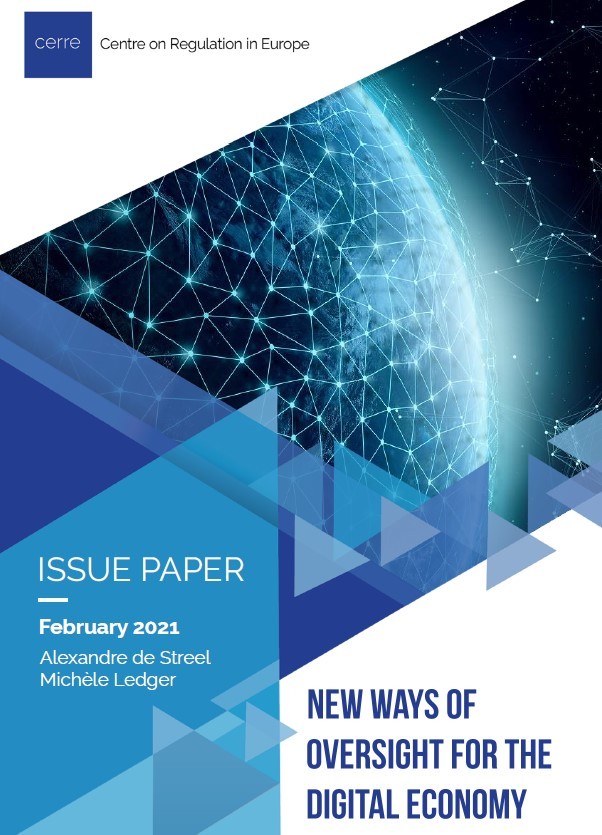Search
News categories
CERRE issue paper: new ways of oversight for the digital economy
posted on
24 February, 2021 01:00
(public)
A call for a cultural shift to support an ecosystem of oversight based on cooperative relationship between regulators, platforms and users
A CERRE paper entitled 'New ways of oversight for the digital economy' published on 23 February 2021 provides reflections on how regulatory oversight can be carried out and depicts regulatory authorities as the orchestra conductor of a cooperative digital ecosystem. Authored by Alexandre de Streel and Michèle Ledger from the University of Namur, the paper aims to stimulate the discussion around models of oversight of the platform economy. Accordingly, the key ingredients of a successful “ecosystem” of oversight include:
-
General principles and essential features of regulators to ensure a good regulation and oversight;
-
An effective cooperation between regulators, platforms and users
-
Digital and technical support.
-
An ‘overarching duty of benevolence’
Along with well recognised prerequisites for effective regulation, such as independence, accountability, adequate funding and powers, the report advocates an ‘overarching duty of benevolence’ as a guiding principle.
-
In this respect, the authors encourage a risk-based and open approach to support a better understanding of the digital economy and thereby generating trust in the regulator’s decision-making process.
-
The report also promotes ‘innovation friendly’ and ‘experimental’ regulation to support and adapt to the evolving digital economy, for instance with innovation exemptions or experimental regulatory actions.
-
An ecosystem of oversight 'to empower users to create market incentives'
To ensure a cultural shift from rules to incentives, the authors call for:
-
Regulatory guidance with regular assessment and review: The paper states that regulators should guide on what is expected from platforms and suggests a three-pronged approach with evolving general guidance, fed by consultation and dialogue with stakeholders and users, complemented by specific guidance for particular issues (children’s protection or terrorist content for instance) and individualised guidance where needed (e.g. reviewing Terms and Conditions of large platforms or assisting start-ups).
-
Code of conducts prepared openly, monitored in an autonomous way and sanctioned when violated.
-
Internal compliance mechanisms within the platforms, such as risk assessments and the appointment of a compliance officer.
-
Digital literacy from regulators and platforms to make the user proactive. In this respect, the report highlights the European Claudette project and the Open Terms Archive & Scripta Manent project in France, both aimed at providing data and tools for users to check compliance and track changes of platforms' Terms and Conditions.
-
Support by independent auditors.
-
A technological oversight
-
Human and technological resources
Artificial intelligence tools should be developed within the regulators’ own structure alongside powers to request data from platforms in order to understand the mechanisms and ecosystem implemented by platforms and to manage the analysis of prolific data, human and technological resources.
As an example, the authors mention specific digital units established within some regulators in France (Competition Authority) and in the UK (Ofcom, for instance). -
From a legislative code to a computer code: compliance by design
Coding legal requirements directly into the algorithms may be worth exploring. However, the paper stresses that only 'closed rules decided by a legislative body' could be addressed in a ‘computer code’ as such rules require to be concrete and precise and cannot be decided only by privately-owned and managed companies.
To improve their operations, should regulators be inspired by the ways of working of the digital platforms they will oversee? This is the approach of this thought-provoking paper.
![]() CERRE's publication 'New ways of oversight for the digital economy', by Alexandre de Streel and Michèle Ledger
CERRE's publication 'New ways of oversight for the digital economy', by Alexandre de Streel and Michèle Ledger
